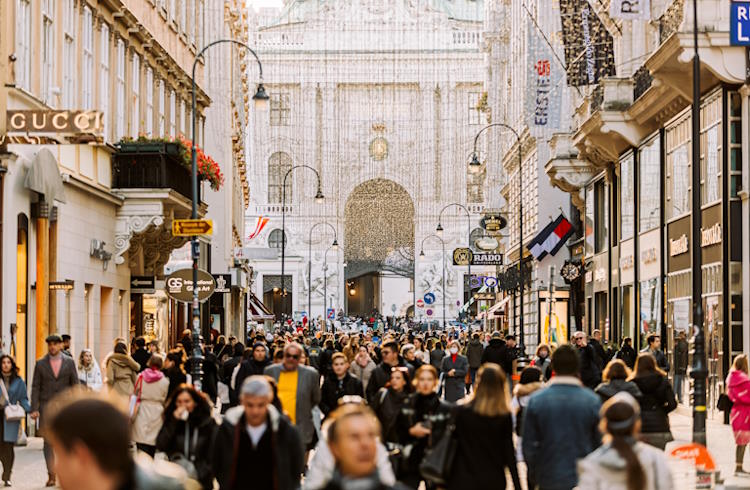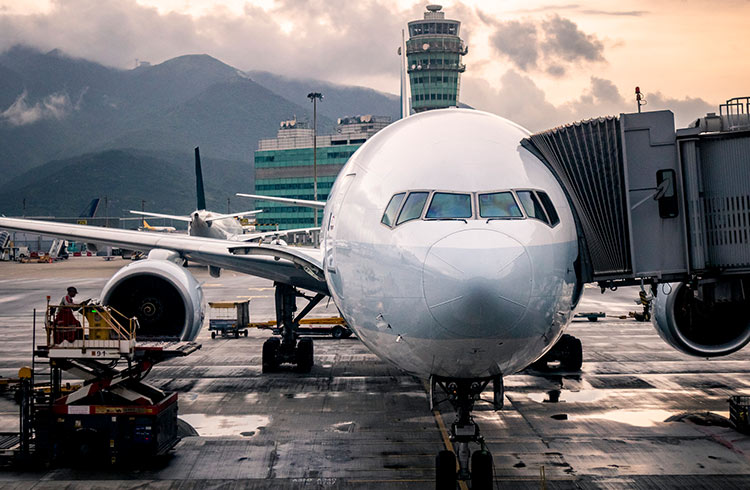How These Destinations Are Combating Overtourism
From Bhutan to Barcelona, here’s what’s being done to curb mass tourism which makes destinations pricey, crowded and bad for the environment.
 Photo © Getty Images/Alexander Spatari
Photo © Getty Images/Alexander Spatari
From cheap flights to remote work conditions, there are numerous reasons why some of our favorite cities are becoming saturated with tourists. Crowds make travel more expensive, frustrating, and difficult, and they can also be dangerous to the destination by trampling on sensitive environments and eroding local culture.
What should an ethical traveler to do? The first step is to consider visiting less-crowded alternatives to popular destinations or to prioritize destinations putting the planet first. Also, contemplate traveling during off-peak seasons, which are less crowded and less expensive.
Wondering which places have figured out how to limit the number of tourists passing through? We’ve rounded up a list of global destinations that have taken significant steps to curb mass tourism.
Bhutan
The Eastern Himalayan Kingdom of Bhutan, which is landlocked between China and India, is known for clifftop monasteries, misty terraces, and Himalayan hiking trails. Since last year, Bhutan is also now known for a hefty tourist tax that was introduced to curb the number of visitors and preserve its unique cultural heritage. Bhutan follows the tourism motto of "high value, low volume" and its government believes that if travelers have journeyed all the way there, they should contribute towards the country's development.
As a result, the previous daily visitor fee of US $65 (which remained unchanged since 1991), jumped up to $200 per day in September 2022. (The fee was revised again in 2023 and is currently USD $100 per day.) Known as the Sustainable Development Fee, it is utilized to support healthcare, education, and environmental infrastructure projects and it is separate from the mandatory $40 visa fee.
According to Brijesh Sarsar, of Authentic India Tours, which operates tours in Bhutan, while the previous fee covered expenses such as guides, hotels, and meals, the new tax does not include these services, it simply allows you to visit. He also adds that his company’s Bhutan office saw an immediate and substantial fall in new travel bookings after the new tax went into effect, so it would appear the new rules are working.
Barcelona, Spain
As one of the most tourist-choked cities in the world, Barcelona has long struggled with how to balance welcoming the visitors – who are necessary to sustain the local economy –while also maintaining quality of life. Residents have long complained that the 32 million annual tourists clog their streets, clutter their beaches, and create loud nuisance. Barcelona, which was, in 2012, one of the first cities to implement a city tourist on top of the regional tax, announced in 2022 that guided tours would also have capped numbers and limited routes. They also would have to adopt headsets and earpieces instead of megaphones.
While the city has not yet found a perfect solution, economy professor, Pedro Aznar, says the answer is distinguishing between different types of tourism. For instance, he says there is a large economic difference between a bachelor party ( which comes to spend one night in a budget hotel) and a family (who stays multiple days and plans a full schedule of cultural and gastronomic activities). In 2022, Barcelona announced an incremental growth of this city tax that will vary based on the accommodation type. As of October 2024, visitors to the city must pay €4 on top of the regional tax. This means guest rentals will cost an addtional €5.25/night, and five-star hotels will charge an additional €7.50/night.
Manchester, UK
Manchester became the first UK city to impose a tourist tax on April 1, 2023. Dubbed the “city visitor charge,” the tax will impose an additional £1 per night, per room in hotels in the city center. Though the fee is modest, it’s expected to draw in £3 million per year, which will go towards the new Manchester Accommodation Business Improvement District (ABID) and its goal of supporting the city’s visitor economy and experience.
Its strategy will include increasing overnight visitors by amplifying marketing campaigns but balancing that push by securing large-scale events during low-season periods. For instance, it plans to hold large sporting events, concerts, conferences, and festivals during off-peak months to incentivize travelers to visit when the city is less crowded.
Amsterdam, Netherlands
While the Dutch city of Utrecht is helping combat climate change by putting cycling first, its sister city, Amsterdam, is focused on combating overtourism by decreasing visitors to its famed Red Light District. What’s unique about its approach is that it’s specifically targeted at British male visitors aged 18-35, who tend to focus their travels on drinking and using drugs. Many of these visitors specifically come for raucous stag (bachelor) parties, which the city is actively trying to discourage.
In a campaign launched in March 2023, would-be British tourists searching terms such as “pub crawl Amsterdam” and “stag party Amsterdam” were greeted with a serious video advertisement warning visitors of the consequences of an alcohol- and drug-fueled trip. Amid images of police arrests and jail stays, viewers seeking a “messy night” are warned to stay away.
On top of their ad campaign, on May 25, 2023, Amsterdam also enacted a new rule prohibiting marijuana smoking on the street in the Red Light District. A majority of the city council approved the measure to curb the crowds, noise, and general nuisance associated with tourists in the area.
Venice, Italy
As visitors far outnumber residents on the narrow streets of Venice’s historic center, the city implemented a new rule that went into effect in 2024. Day trippers will no longer be able to just show up in the historic center; rather, they must first make an online reservation up to four days in advance and pay a fee. Overnight visitors, whether staying in hotels, guesthouses, or other accommodation, are exempt from the rule. Considering that about 80% of the city’s visitors are day trippers (approximately 19 million per year), the new policy stands to have a tremendous impact.
The daily trip fee is 10 euros (USD $10.30) per person and will be applied on specific days during the high season (April 18 through July 27). Violators risk fines as high as 300 euros (USD$315) if they are stopped and unable to prove (via QR code) that they pre-booked and pre-paid.
Related articles
Simple and flexible travel insurance
You can buy at home or while traveling, and claim online from anywhere in the world. With 150+ adventure activities covered and 24/7 emergency assistance.
Get a quote



No Comments